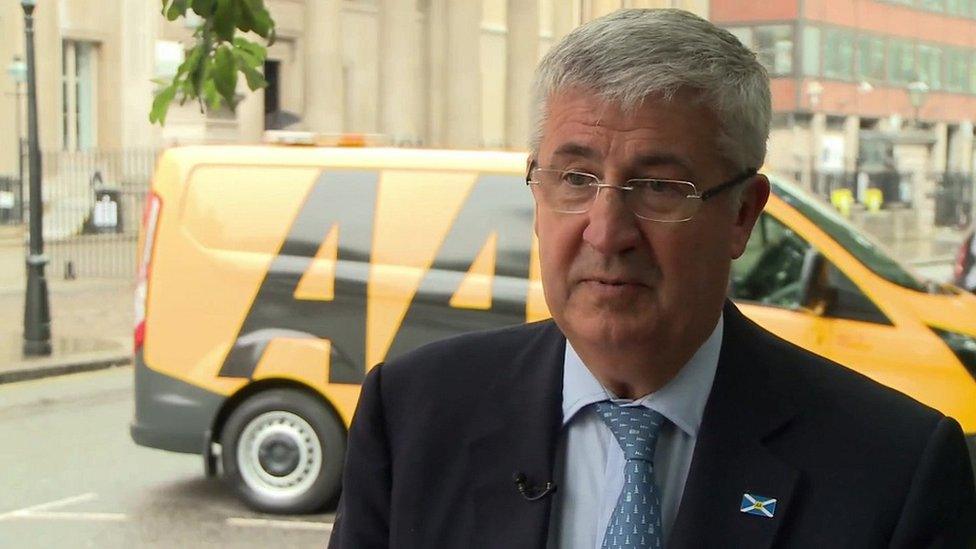AA sacks boss Bob Mackenzie for 'gross misconduct'
- Published

Mr Mackenzie had been the AA's executive chairman since June 2014
The AA has fired its executive chairman, Bob Mackenzie, for "gross misconduct", with immediate effect.
Its statement, external gave no further details as to the reasons for his departure, but an AA spokeswoman said it was "a personal conduct matter".
But Mr Mackenzie's son said his father had "tendered his resignation this morning... due to acute ill health".
Peter Mackenzie said: "This is an extremely distressing mental health issue."
He said his father had been suffering symptoms of the ill health "for some time".
"A consultant clinical psychologist advised him last week that he needed to take at least six months leave. He is very unwell and has been admitted to hospital."
Shares in the AA closed 14% lower after the roadside recovery firm also said trading had been affected by "erratic workload patterns".
Mr Mackenzie had been the AA's executive chairman since June 2014.
The company said he would be replaced by non-executive chairman John Leach, while Simon Breakwell - who was a founder of Expedia - has been named as acting chief executive.
Mr Mackenzie had led the AA since overseeing a management buy-in of the company in June 2014, which led to its shares being listed on the stock market.
Before that, the company had been owned by private equity firms Permira, Charterhouse and CVC.
The AA's share price plummeted after the announcement was made:
Mr Mackenzie's departure had "created some concern and a lot of uncertainty. Sellers/shorters are seeing this as a potential opportunity to put more pressure on the shares," said Berenberg analyst, Ned Hammond.
"Obviously the circumstance of his departure is particularly bizarre and unforeseeable," he said.
Shareholders and people who were thinking of buying AA shares didn't really know what to make of the development, he added.
The AA said it would release its half-year results at the end of September.
It said these would be hit by the "erratic workload" issue, particularly in June and July, when the company had not had enough patrol vehicles to meet demand and had had to buy in last-minute cover.
The company has also made changes to the way it accounts for certain products.
One example is that the commission paid on the sale of breakdown cover is paid upfront to third parties, whereas the benefit to the AA is booked later.
The company said its full-year performance would now be broadly in line with last year's. It added: "We remain confident in the resilience and long-term prospects of the AA."
- Published22 May 2017
